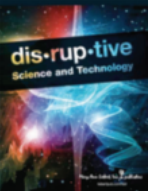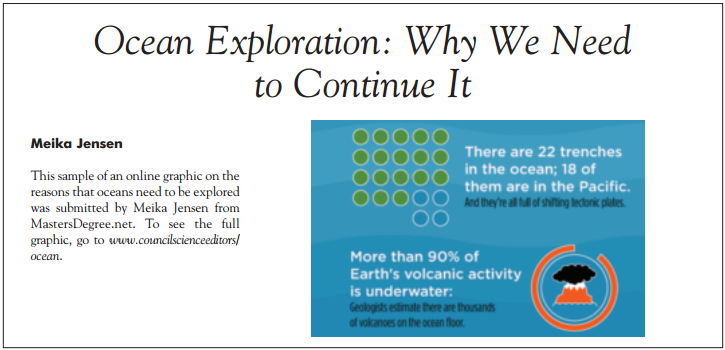Finch report on open access
The Finch report on open access in the UK was released on July 16, 2012. See the report at http://tiny.cc/7a44fw. Accessibility, Sustainability, Excellence: How to Expand Access to Research Publications, is the product of a year’s work by a group drawn from academe, research funders, and publishing.
Infographic: Research misconduct
Research misconduct allegations and retractions are increasing, and the increase is causing concern about the costs of misconduct and the future of research and publishing. An extension of the report True Costs of Research Misconduct, this infographic illustrates the growing problem of plagiarism, other forms of misconduct in research, and the types of damage incurred by misconduct. See iThenticate Original Thoughts Newsletter, May 2012, http://www.ithenticate.com/research-misconduct-infographic/?&t=34428 &Preview=true.
Will a new literature format “radically alter” how scientists write, review, and read papers?
 A group of authors at a Pittsburgh company have proposed a new way to write, review, and read scientific papers that they claim will “radically alter the creation and use of credible knowledge for the benefit of society”. Go to http://online.liebertpub.com/doi/abs/10.1089/dst.2012.0002 to read the abstract of a paper appearing in the new Mary Liebert journal Disruptive Science and Technology, which promises to “publish out-of-the-box concepts that will improve the way we live”.
A group of authors at a Pittsburgh company have proposed a new way to write, review, and read scientific papers that they claim will “radically alter the creation and use of credible knowledge for the benefit of society”. Go to http://online.liebertpub.com/doi/abs/10.1089/dst.2012.0002 to read the abstract of a paper appearing in the new Mary Liebert journal Disruptive Science and Technology, which promises to “publish out-of-the-box concepts that will improve the way we live”.
Making smart content work in a clinical setting
Discussion surrounding applications for the Semantic Web have focused on discoverability. Beyond its ability to help readers and researchers find new books or articles that they might otherwise not uncover, the Semantic Web has exciting practical applications. The technology is ideally placed to help clinicians leverage vast stores of published medical information and even perform as a diagnostic tool. Imagine a medical library so intelligent that a doctor has only to list the combination of a patient’s symptoms to receive a list of possible diagnoses—even suggestions of suitable treatments. Seems like science fiction? Elsevier has begun to do this with its experimental platform Clinical Key, which aggregates huge amounts of medical and surgical content to create what it calls a Clinical Insight Engine. See the discussion posted July 17, 2012, by the blog Publishing Technology (http://blog.publishingtechnology.com/author/publishingtechnology).

